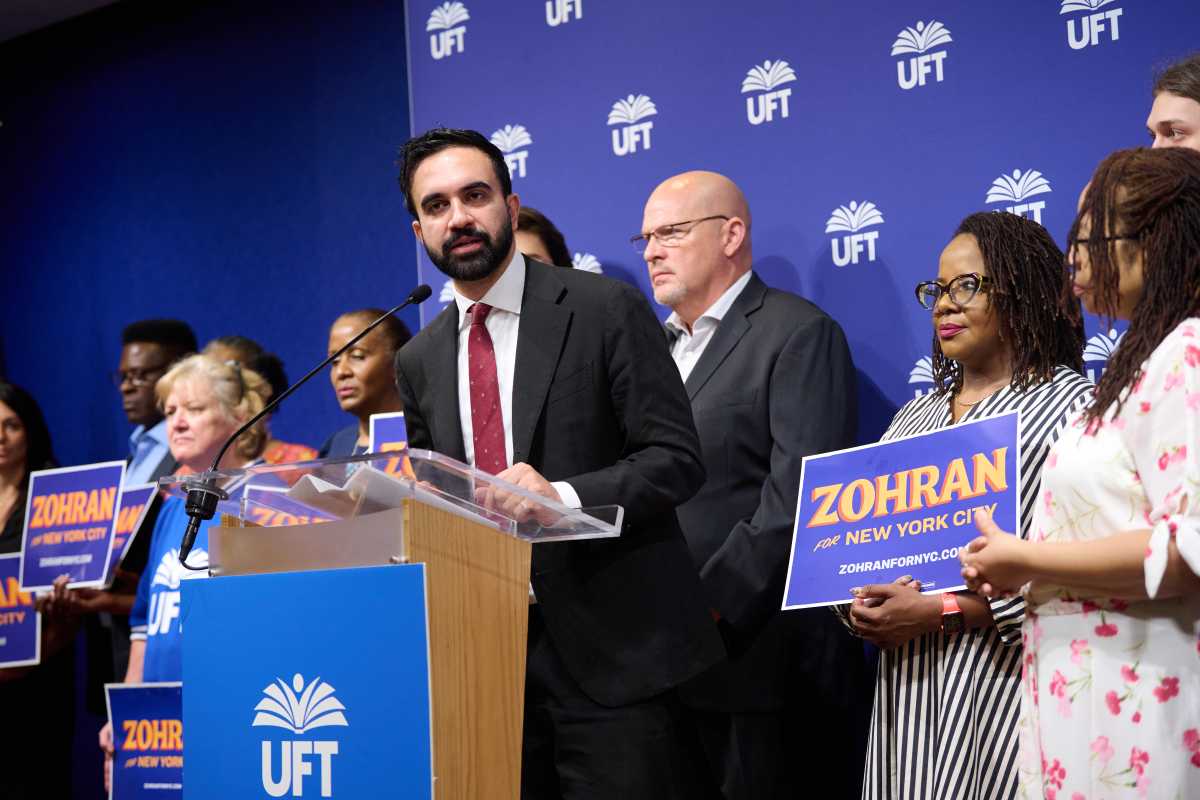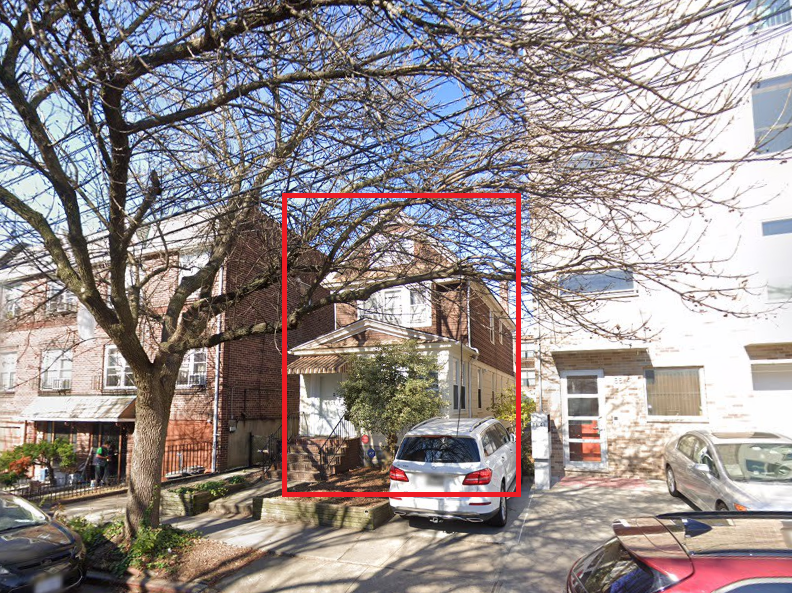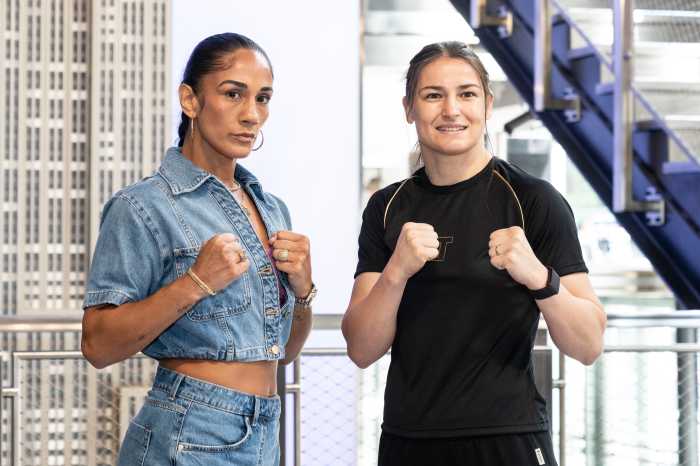A hush fell over the One Stop Richmond Hill Community Center as astronaut Garrett Reisman floated across a TV screen, hindered by a video connection that was causing him to flicker.
It could have been the weather - the “rain fade effect” - explained a DirecTV representative on hand to make sure the center’s live videoconferencing session, or “downlink,” with Reisman aboard the International Space Station (ISS) went smoothly.
The ISS was traveling around the earth once every 90 minutes at an elevation of 250 miles, so poor reception could easily have been forgiven. After all, One Stop’s honor of having been selected for a coveted “downlink” with NASA was humbling in and of itself; NASA arranges only a few a year and One Stop would be participating in the first ever coast-to-coast “downlink,” interacting with Reisman along with students from Valley Christian Elementary School in Bellflower, California.
But the anticipation and nervousness on those 32 little faces - the 26 area fourth- and fifth-graders who had been attending the twice-weekly Computer Technology Videoconferencing Program since January were joined by a few guest students from P.S. 90 - not to mention the wide-eyed look on the face of the after-school program director Neme Alperstein, had everyone in the room holding their breath as Reisman, over one million feet up in the sky, tended to his audio-visual gear.
“When they were saying, ‘we don’t have the focus right,’ I thought, ‘oh dear,’” Alperstein recalled after it was all said and done, recounting months of intensive preparation.
The video feed was promptly fixed, however, and Reisman appeared, ready for his ten-minute interrogation in the ISS’s Harmony module.
All chatter ceased and all eyes were on little Emily Balaguera as she nervously asked Reisman what he and his fellow astronauts liked to talk about. There was a few-second delay between audio and video - which, in a way, underscored the incredible distance covered by the connection - as Reisman explained that topics of conversation ranged from work, to family, to discussing experiences from the astronauts’ respective corners of the globe, to telling jokes.
Armanpreet Kaur, a fourth grader from P.S. 90, was not one of the ten students who asked a question but she did not mind.
“I felt happy that my teammates were able to ask and I got to listen to them,” Kaur said, echoing Reisman’s emphasis on the importance of collaboration and solidarity aboard the ISS.
Kaur, fluent in Punjabi, said she enjoyed it when Reisman explained that both English and Russian are spoken aboard the Station.
The highlight of the “downlink” came during Valley Christian’s 10-minute window when a student asked, “what is the most fun thing to do in microgravity and can you show us?”
Students and adults alike inched a little closer to the screen in anticipation.
“He’s gonna do a flip!” whispered one excited student.
Reisman did not flip once, however. He flipped about ten times, spinning his way along the length of Harmony and back, to enthusiastic laughter and applause.
Reisman then grabbed a 10-gallon jug of water, weighing around 80 pounds, and toyed with it as if it were a birthday balloon.
“He just started flipping. I was like, ‘whoa!’” recalled nine-year-old Michael Mailat-Truta, a fourth grader.
Asked if he wanted to be an astronaut, Mailat-Truta, a student at P.S. 90, leaned back in his chair and smiled, looking satisfied well beyond his years.
“Oh yeah,” Mailat-Truta said, nodding his head slowly and confidently, though he admitted his feet started hurting from sitting on the floor, legs crossed, for so long during the “downlink.”
Simcha Waisman, President of One Stop, admitted he was so anxious for the “downlink” that the very notion of it had crept into his dreams.
“This is once in a lifetime,” Waisman said of the unique opportunity for his students.
“But we hope we can do it again.”
Sure enough, everyone from Michael Simanowitz, chief of staff for Assemblymember Nettie Mayersohn - who, along with Assemblymember Anthony Seminerio and State Senator Serphin Maltese helped fund the videoconferencing program - to the fourth graders who didn’t get a chance to ask Reisman a question are hoping for more “downlinks” and other videoconferencing opportunities in the future.
“The kids have great imaginations,” Alperstein said proudly, over the buzz of excited students and thoroughly impressed guests.
As Alperstein surveyed the room, she smiled and raised her eyebrows.
“We never know what’s coming next,” she said.
































